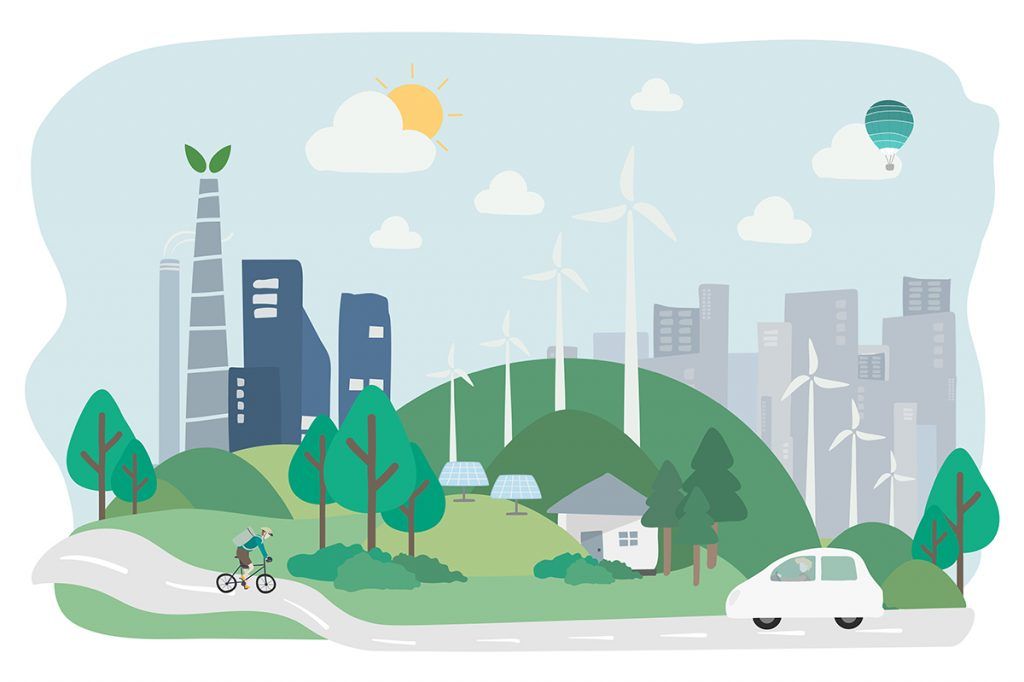Companies are asking their cleaning contractors tougher questions about sustainability.
Many businesses in New Zealand are extending a growing focus on sustainability into their suppliers and supply chain.
This includes cleaners, alongside property management and other services. This paradigm shift in procurement means enlarging the picture and no longer hiring just on price and a minimum standard of service.
As cleaning companies, client businesses increasingly want to ensure the way that you do what you do lines up with their companies’ ethics and ethos.
There are a number of regrettably common issues in the cleaning industry. The industry was earmarked for further investigation in a 2016 report, still the most comprehensive study of modern slavery issues within New Zealand.
Worker Exploitation in New Zealand: A Troubled Landscape1, was led by Dr Cristina Stringer from the University of Auckland. The cleaning industry was also the subject of a recent ‘blitz’ by the NZ Labour Inspectorate2. This ran from late 2017 into early 2018.
Well informed businesses are increasingly aware of these developments. They are alert to the danger of workers receiving below-minimum pay wages, unfair and illegal contracts and visa breaches. They know that robust safeguards are needed and even companies with sound reputations may fall short not only on detail but aspiration.
If you’re reading this magazine it’s highly unlikely you are knowingly running that kind of operation. But these days the best businesses go further than meeting minimum legal standards. Doing so will help attract and keep the kind of customers you want to work with. It will keep your business viable as expectations change.
The products and materials used by cleaners have also come under increasing scrutiny in recent years. Cleaning – for the time-being at least – involves chemicals. Many of these have known effects on people’s health. They can be flushed down drains and toilets, where they ultimately end up being a part of waste water running to sea.
There are well-established ‘eco’ alternatives for all major products used by cleaning companies. More and more clients will stipulate their use. Environmental Choice New Zealand (ECNZ) has a range of approved cleaning chemicals and hygiene products.
So does the Asthma Foundation, with its ‘Sensitive Choice’3 range. For paper-based products, such as paper towels and toilet paper, multiple eco-alternatives are available (generally using certified paper, recycled paper, or paper made from non-tree-based materials). Microfibre cloths should be used instead of cotton cloth.
Why consider sustainability?
Cleaning suppliers can positively contribute to their clients’ sustainability goals. They can support better outcomes for people, planet, community and business ethics.
The flipside of this is risk. Cleaning suppliers may be introducing the risk of unethical and illegal practices to a client business. Or the way they operate can cut against the business’ brand. Imagine if the company cleaning eco-store’s premises didn’t use its range of plant-based products? Or if a leading asthma society was cleaned in a way likely to trigger their client’s allergies?
Another key consideration for companies is employee health. Many businesses explicitly emphasise the care they take with their employees as a core value of their organisation. Taking a precautionary approach to staff exposure to potentially harmful cleaning agents is a way of making good on those commitments. Similarly, many businesses propound ‘good neighbour’ type values. They commit not just to using responsible environmental practice in their own work, but also to promote it wherever possible.
The sort of questions you could be asked
You might find increased scrutiny of cleaning products and processes takes the form of a formal check-list. Or it might just be a conversation with the potential client. To be in with a chance to gain work from clients with a concern about your environmental and social performance it pays to have as much of this information ready to share as possible. Indeed, transparency is increasingly regarded as a value in itself. Refusal to answer questions on dubious ‘commercial confidentiality’ grounds is unlikely to win points.
One of the easiest ways to set minds to rest is accreditation. For example, The Environmental Choice New Zealand Standard for Cleaning Services (EC-45-18), provides clients with a robust third party certification on your practices.
The specification focuses on minimising the use of chemicals, proper collection and disposal of waste and proper safety training and protection for cleaning staff. It means only buying chemical cleaning products, sanitary paper products, soaps, toiletries and other consumables licensed by ECNZ. Plastic packaging of cleaning products must be refillable where possible and recyclable. Chemical products must be bought in quantities that minimise packaging waste, where feasible.
You can also expect to be asked increasingly detailed questions about how you give back to your local community. Clients will want to know more about how you use energy. They will ask about how you recruit and look after your staff – including what you pay them.
While this may seem disconcerting at first, it is to be welcomed. It’s another sign that the days are on the way out when clients see cleaning as out of sight and out of mind.
Instead cleaners are being asked to make ‘having their own house in order’ a feature of their business pitch. The returns are promising – more business, better client relationships and happy employees.
*Samuel McGlennon is a procurement advisor at The Sustainable Business Network.
This article first appeared in INCLEAN NZ magazine.
Clean Planet is a member of Sustainable Business Network.
Clean Planet is the only cleaning company in New Zealand get approval from Sensitive Choice Programme, New Zealand (Asthma and Respiratory Foundation).

